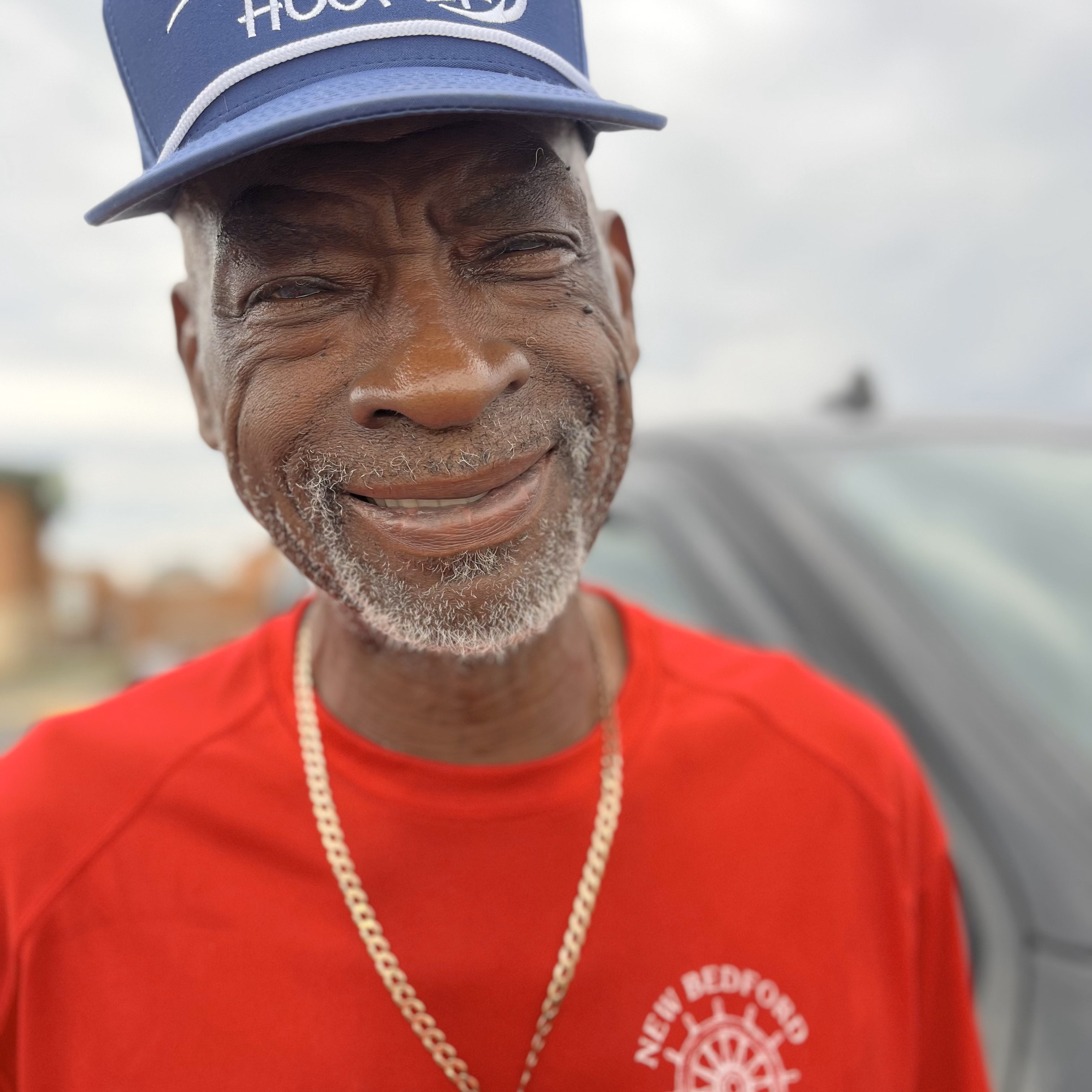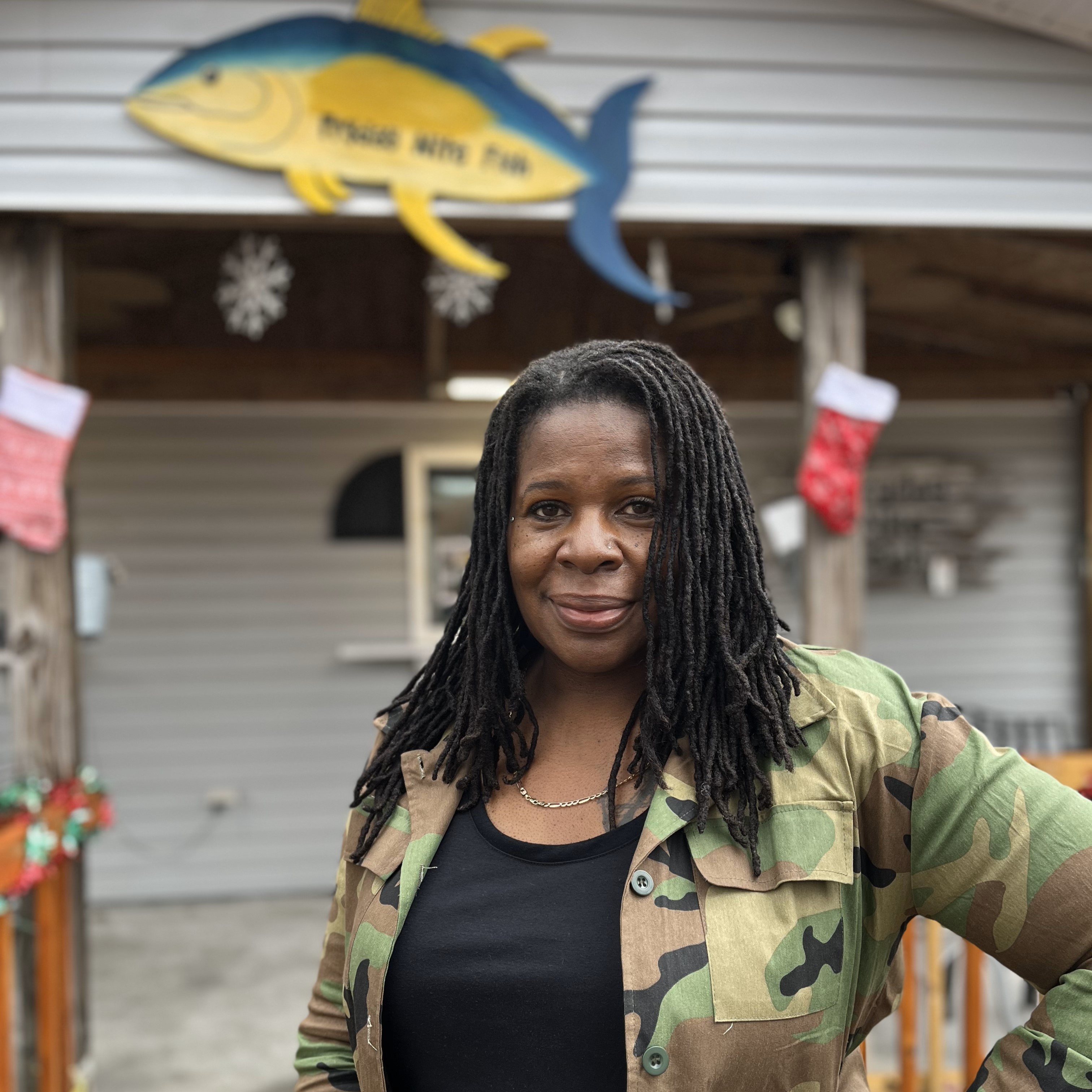‘Captain 40': One North Carolina's only Black fishing captains navigates changing tides

Captain Johnny Flowers, 72, thinks he might retire from commercial fishing in the next few years. Or maybe just downsize to a smaller boat. The Brunswick, Ga., native has dedicated four decades of his life to the ocean-going trawler Captain Sammie based in Engelhard, N.C.
“They call me Captain 40,” he chuckles.
One of the only Black captains in the state’s commercial fishing industry, Flowers has navigated the Atlantic’s vast expanse, from Pamlico Sound to the Canadian line and down to Georgia’s shores, chasing species like summer flounder, sea scallops, black sea bass and prized shrimp, the most popular seafood in America.
From the moment he assumed command of the boat three years ago, Flowers has felt a profound sense of responsibility to his crew. “They depend on me to make them a living,” he says.
______________________________
This story is part of NC Catch’s “Recognizing African American Participation in the North Carolina Seafood Industry” project. North Carolina’s Black seafood business community has partnered with researchers in this historic project conceived by NC Catch to build understanding of the vital role African Americans and people of color play in the state’s seafood industry. Narratives, video and oral histories tell the stories of Black fishers, wholesalers, chefs and others working in seafood. A N.C. Sea Grant 2024 Community Collaborative Research Grant has helped fund the project.
______________________________
A challenge facing the entire U.S. shrimping industry is finding crew members and the steep decline in shrimp prices due to a surge of imported shrimp from overseas. Per-pound profits have dropped 50%. “But we just keep going,” said Flowers. “The shrimp is plentiful.”
Flowers share his story in a 2024 interview with the NC Catch African American Participation in North Carolina Seafood project team. The following has been edited for length and clarity.
You’re from Brunswick, Ga., but you weren’t born into a commercial fishing family.
I (fished) when I was in high school with a guy in the afternoon and on weekends. He had his own little boat. And then when I got out of high school, I went in on a Shoney's Big Boy (restaurant) and became part owner. It was me and my brother. Then we sold our share, and he bought an Allstate insurance. And I became a fisherman.
What year were you born?
1952
When you were based in Georgia as a commercial fisherman, did you motor up to North Carolina to fish?
Well, when I first got on the boat, we was traveling from North Carolina to Brunswick Georgia, in season. Because roe shrimp down there start in May. And then we left and came back up here for summer shrimp. And so, we was traveling back and forth from Brunswick to North Carolina. We would offload in Swan Quarter, back in that time, to Mitch Newman Seafood.
Newman Seafood. They’re still there (in Swan Quarter). Were you part of a Black crew?
Oh, yes.
Tell us about your crew now.
Most of them been with me now for about 10 years. One Black and two white. You can hardly find anyone to work now. Hard to find anyone.
You started fishing aboard the Little Sammie 40 years ago, just a year after it was built. How did you become the captain?
I've been captain now for three years because (the owner’s) nephew was captain. His wife got in bad health because she had cancer. So, he turned it over to me.
When you became captain, did you have to learn any new skills?
Yes. Like we used to write a report on paper. Now, everything goes through the phone. All your tickets, everything goes through the phone, to report. Matter of fact, I got to start a new trip report every Sunday: How many crew men go on the boat? What's the name of the boat? My ID number. Everything.
There aren’t many Black commercial fishing boat captains out there.
No, it's not very many. I don't know why. Most times, a lot of people are scared of the water . I mean, back in the day, you had a lot of Black captains on them boats, but most of them died away.
As a Black captain, do you feel like you've ever had any challenges associated with being a person of color?
I think I'm treated fairly, because you got to go out there and find them (fish) on your own. You know, you got a lot of captains out there to help you. We help each other out, you know? Everybody competes against everybody, but most time, everybody works together.
You have two sons. Are either of them watermen?
One of them, he was working with me, but no, they don't take to the water thing. My oldest son, he used to go out on the boat, shrimping with me in Pamlico Sound. He didn't want to, so he would go back on the stern, take him an Alka Seltzer, act like he was throwing up. And then he went and joined the Navy. Ain't that something!
Tell us about the fisheries that brought you to northeastern North Carolina, N.C.
When we first started, you know, the money was greater back in those days, going from North Carolina to Brunswick. And then, as the boats got bigger and we got scalloping’, then we stopped going to Brunswick, because, you know, the shrimping fell off and then the scalloping picked up. And so now, instead of going to Brunswick, I go scalloping in May.
You’ve fished as far north as the Canadian. What do you fish for up there?
Flounder, sea bass and scallops.
Have you noticed any difference in fishing up there over the years?
You can't catch as many as you want to. Got quotas on everything. And when the quota is (almost filled), a lot of fishermen are working in much worse weather than they would like to, because they (regulators) put a date on you. They say, well, you got 100 boxes to catch in a certain amount of time. If the weather stays bad the whole time, you just lose that quota.
How do you keep your crew when you don’t catch anything?
A lot of them, they got work around the dock. You know, they pay them real good. So, there's always something.
What other changes have you seen in the overall fishing industry over the years?
We don't get as much money for our seafood as we used to. The trips we are making now, we should be getting like forty, fifty thousand dollars, and now we're barely paying for fuel. Like, the shrimp average, only $2.24, somewhere along in there. Back in the day, it was averaging over $5.
So how are you making it?
Just keep going, keep going and get what you can.
Have you noticed any changes in the seasons and the climate? Or the abundance of shrimp? The shrimping season seems to run longer than usual these days.
Yes, it's been running later because around Christmas we would be flounder fishing then. Normally now, the shrimping lasts right on to January, because of the (warmer) weather. You know, the hot weather like right now (in November). You know, we should have been in the ocean shrimping. And there's not any in the ocean right now because the water is not cold enough. The (warm) water is still out there, and the sharks will eat your nets up.
When you came to North Carolina, you were originally in Swan Quarter.
I live in little Washington now. I bought a piece of land and bought me a new house, moved it there. My wife, she works at the Greenville hospital, and I work in Engelhard. So, it's about halfway for both of us.
What do you like about being a commercial fisherman?
The peace and quiet out on the water, and you ain't got to worry about your wife telling you, do this, do that.
What's the hardest part about your job?
Basically, you know, it's not hard if you put your mind to it. The hardest thing is chasing these shrimp down because these shrimp move every day. And being captain, you got like four more people (on your crew). You got to supply for their family too. So, they depend on me to make them a living.
At times, you know, it's a lot of stress on me. But you know, we find them (the shrimp), we find them.
Have you ever been in a dangerous situation out there while you're shrimping and fishing?
Yeah. A lot of times, when you leave home, you're not guaranteed to come back, so just put it in the good Lord's hand.
About 20 years ago, we was off Norfolk Canyon (the southernmost of the Mid-Atlantic’s large canyons, about 70 miles off Virginia, stretches more than 35 miles and its steep, craggy walls descend over a mile, the same as the deepest part of the Grand Canyon). We were bass fishing, and it was about 2 in the morning. The captain woke me up and said, ‘You go back there and wind the net up.’ I thought I had a flat-top grill in the net. And once we got it close, it was a coffin! When we got it on deck, the lid fell off. I guess it was a sea burial, and they didn't get the coffin in the canyon. And when we pulled it on deck…that thing stunk, yeah. And everybody just ran back in the cabin. So, we had to take it back offshore and push it back overboard in the canyon. And (we said) ‘We didn't mean to catch you. We didn't mean to catch you.’ It's a lot of interesting things out there.
If somebody tells you ‘Don't fear for your life,’ they're crazy, because you don't know what will happen out there. Your life is in the Lord's hand out there, not in yours. But if you take care of your boat, your boat will take care of you.
What would you like the public to know about your life as a commercial fisherman?
Life is good out on the water. You make good money. We just got to get the price back up from all this imported seafood.
So, do you see a future in commercial fishing for others?
Oh, yes, yes.
What's your favorite seafood to eat?
Steamed crabs.
How much longer do you think you'll be fishing?
Well, I was gonna give it two more years and probably retire.
Journalist Liz Biro wrote this report in 2025 based on a 2024 interview by Barbara Garrity-Blake for the NC Catch African Americans in North Carolina Seafood project.





